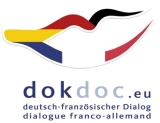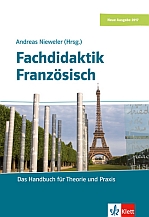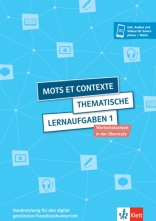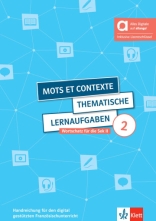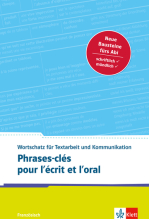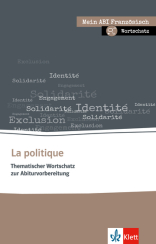Frankreichs Außenpolitik: Zwischen den Ambitionen zur Größe Frankreichs und den Zwängen einer multipolaren Welt
6. Dezember 2022 von H. Wittmann
 Marius-Mircea Mitrache und Sergiu Mișcoiu haben gerade unter dem Titel „The Mental Maps of French Foreign Policy: Between Ambitions of Grandeur and Constraints of Multipolarity in the Twenty-First Century“ einen Aufsatz in dem jüngst erschienen Band Great Powers’ Foreign Policy Approaching the Global Competition and the Russian War against the West (Leiden: 2023, S.198-273) veröffentlicht.
Marius-Mircea Mitrache und Sergiu Mișcoiu haben gerade unter dem Titel „The Mental Maps of French Foreign Policy: Between Ambitions of Grandeur and Constraints of Multipolarity in the Twenty-First Century“ einen Aufsatz in dem jüngst erschienen Band Great Powers’ Foreign Policy Approaching the Global Competition and the Russian War against the West (Leiden: 2023, S.198-273) veröffentlicht.
Dieser Artikel ist bemerkenswert, weil er in aller Kürze ein präzisen Überblick über die französische Außenpolitik seit dem 2. Weltkrieg liefert. Den Verlust der Großmachtstellung konnte Frankreich, so die beiden Autoren durch as verstärkte Engagement in Europa zumindest ein wenig wettmachen: „On the other hand, the European integration processes were perceived by the French top state officials, from De Gaulle to Mitterrand, as a chance to renew the country’s continental influence rather than a loss in terms of national sovereignty. In fact, the rapprochement with the Federal Republic of Germany and the progressive consolidation of the European Communities allowed France to preserve a privileged position in Europe and to avoid isolation.“ (S. 198)
Ganz richtig bewerten die beiden Autoren die Bedeutung des „domaine réservé“, womit die Aufgaben des Staatspräsidenten hinsichtich der Außenpolitik gemeint sind: „However, the constitution of 1958 does not make any specific references to the existence of an exclusive domain, but rather one comes to this conclusion by interpretation, perpetuated by practice since De Gaulle.“ (S. 201)
Im Kapitel 3 „3 How France Reacts, Adapts to and Impacts the Paradigm of Great-Power Competition werden aufgrund der Dokumente wie die Strategic Review fundamentale Orientierungen der französischen AUßenpolitk untersucht. Beide Autoren „passent á la loupe“ diese Unterlagen und zeigen nebenbei wie sorgfältig und imfassend sie ihre Quellen in diesem Aufsatz dokumentiert haben.
Moreover, the Strategic Review (Verteidigungsministeriums, “Defense and National Security Strategic Review,” 2017, > https://www.defense.gouv.fr/layout/set/popup/content/download/520198/8733095/version/2/file/DEFENCE+AND+NATIONAL+SECURITY+STRATEGIC+REVIEW+2017.pdf ) stresses the need for building a European strategic autonomy, defined as a “fresh perspective on European security conditions [that] will be achieved through pragmatic new initiatives”42 and proposes the creation of a European Defense Fund and strengthening the Permanent Structured Cooperation ( PESCO), all while assuring that “France strives to increase Europe’s strategic autonomy, which requires the development of a common strategic culture.”In diesem Zusammenhang wird man die Reden von Emenuel Macron über Europa mit Gewinn wieder lesen.
Man kann der Bewertung der beiden Autoren nur zustimmen “ Just as, in general, multilateralism is instrumental for France’s interests, so is Europe, which became the linchpin of postwar French foreign policy, both under the Fourth and the Fifth Republics, which saw in Europe a power multiplier helping France to avoid being relegated to a second-rate status on the world stage…“ (S. 214)
„When it comes to Europe, Germany is France’s indispensable partner, the French European policy often going first through Berlin and then through Brussels. After the German reunification, with the Bonner Republik transforming itself into a Berliner Republik of 80 million citizens and an economic and industrial hegemon, what Stanley Hoffmann used to call “l’équilibre des déséquilibres”77 between the political French senior partner, and the economic German junior partner, soon transformed into a full-fledged unequal partnership, with Paris lagging Berlin.“ (S. 217 f.) Da muss man genauer hinsehen, nicht immer klappt die auch im Aachener vertrag verabredete Kooperation und Austausch im Rahmen der Außenpolitik zwischen Berlin und Paris, wobei aber auch bei vermeintlichen Alleingängen, (vgl. > Eine Krise zwischen Paris und Berlin? 24. Oktober 2022) die gemeinsame Richtung nicht aus dem Blick verloren wird. Un der Bewertung der beiden Autoren ist zustimmen: „With respect to the European construction, over the decades, the Franco-German bilateralism transformed itself into an embedded bilateralism, meaning that once Paris and Berlin negotiate on a particular issue, the decision on that matter becomes multilateralized or communitarized for the rest of the Union, the other Member States usually rallying up behind one country or another during the negotiations.(S. 218)
Valentin Naumescu (Volume Editor)
Great Powers’ Foreign Policy









